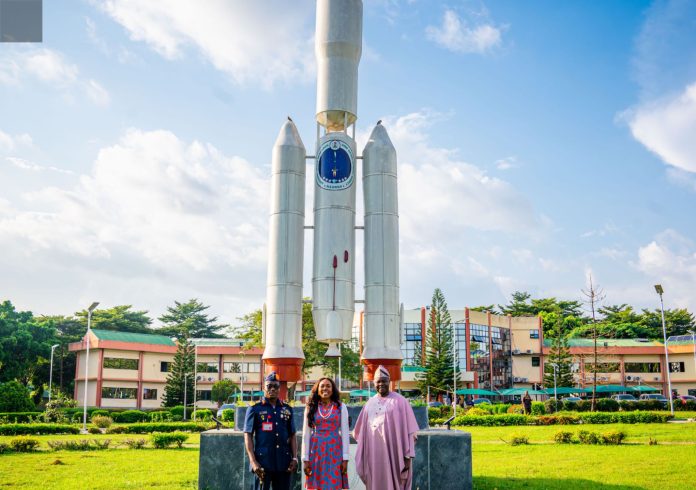The Managing Director and Chief Executive Officer of the Nigerian Communications Satellite Limited (NIGCOMSAT), Jane Egerton-Idehen, has called for greater clarity, credibility, and strategic investment to unlock the immense potential of Nigeria’s fast-growing space and satellite communications industry.
Speaking in a recent interview on ARISE News Channel, Egerton-Idehen addressed one of the most pressing issues facing the African space sector — the challenge of securing sustainable funding. According to her, while there is growing enthusiasm about the opportunities in space technology, attracting serious investors requires more than visionary ideas.
“Investors don’t just throw money at ideas,” she explained. “They back projects that clearly show value, have competent teams, and deliver real results. What we need is clarity of purpose and credibility in execution.”
Egerton-Idehen’s remarks come at a time when Nigeria is positioning itself as a key player in Africa’s space economy, with NIGCOMSAT spearheading the country’s satellite communications agenda. She highlighted that Nigeria’s satellite communication market is currently valued at $200.3 billion, and projections indicate that it could reach $318.9 billion by 2029.
This market growth, she noted, is closely tied to the wider Information and Communications Technology (ICT) sector, which already contributes nearly 20 percent of Nigeria’s Gross Domestic Product (GDP) — a testament to the country’s digital transformation and innovation capacity.
Egerton-Idehen believes that expanding investment in the space economy could create thousands of jobs, stimulate research and innovation, and drive the emergence of new startups in critical areas such as connectivity, data services, fintech, agriculture, logistics, and education technology.
“This is the next frontier for Nigeria’s tech ecosystem,” she said. “The question is: will we invest in it early enough to lead, or wait to play catch-up later?”
Industry analysts agree that the space sector offers Nigeria an opportunity to diversify its economy beyond oil, enabling the nation to leverage technology for economic resilience and global competitiveness. However, they also caution that achieving this vision requires policy consistency, private sector participation, and credible governance structures to inspire investor confidence.
Under Egerton-Idehen’s leadership, NIGCOMSAT has intensified efforts to strengthen the country’s satellite infrastructure, expand broadband access, and collaborate with local and international partners on projects that promote knowledge transfer and capacity building.
Her advocacy aligns with the National Space Research and Development Agency (NASRDA) and the Federal Ministry of Communications, Innovation and Digital Economy, both of which have been advancing policies to position Nigeria as a hub for space-based services and digital innovation in Africa.
Egerton-Idehen, who is also an author, board member, and angel investor, has consistently championed women’s participation in technology and STEM education. Her work has earned recognition both within and outside Nigeria for promoting diversity, leadership, and innovation in the tech sector.
She recently published an opinion piece on Nairametrics, where she expanded on her ARISE News remarks, urging stakeholders — from policymakers to venture capitalists — to prioritize early investment and credible partnerships that can transform Nigeria’s space ambitions into tangible economic value.
As global interest in the African space economy grows, experts believe that voices like Egerton-Idehen’s are crucial in shaping a future where Nigeria moves from being a consumer of satellite technology to a leading innovator and exporter of space-based solutions.




